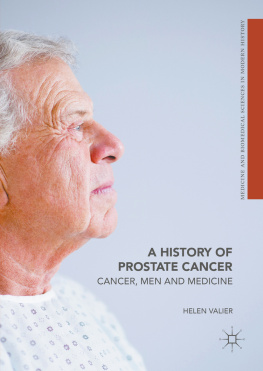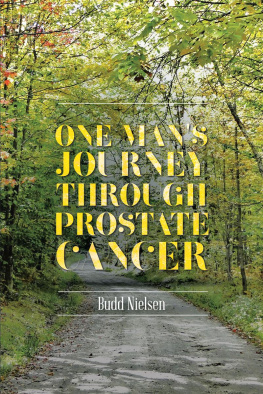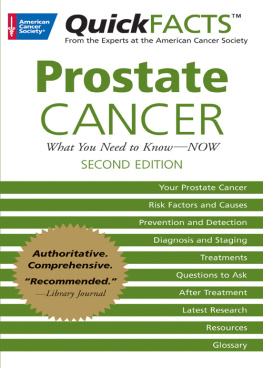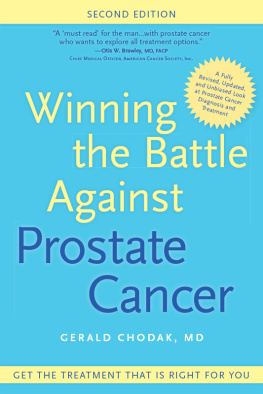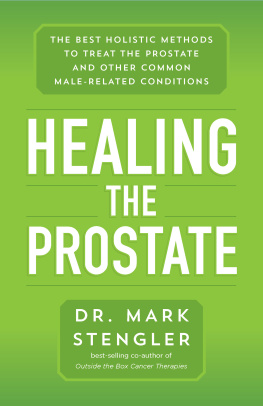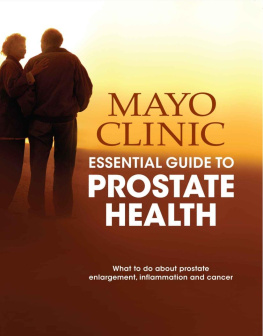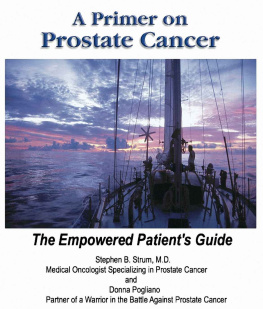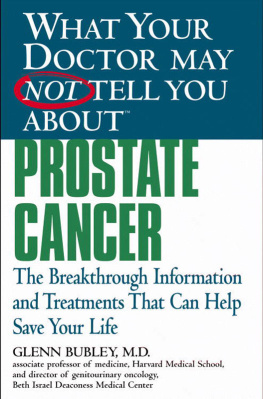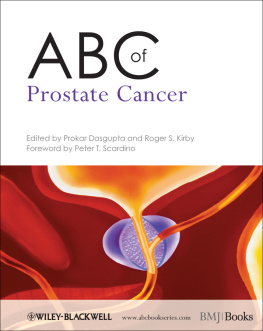1. Introduction: The Prostate, Cancer, and the Making of Modern Medicine
How can the very old come to define the very new? The ailments that make up a collection of diseases labelled cancer are described in ancient manuscripts, depicted in millennia of human artifice and exposed within prehistoric human remains. As a species we have always lived with malignant tumours and wasting death. Nevertheless, there is something undeniably modern about cancer. For over a century, the control of cancer has perhaps been the ultimate test of our medical prowess, a yardstick measuring our incremental control over nature and a testament to our unwavering expectation of longer, healthier lives, unhampered by disease and disability. The capricious and intractable nature of cancer has not, by and large, done much to sink our buoyant confidence in scientific progress but it has introduced a paradox, widely felt if not always acknowledged, that all is not well in our scientific age. The history of cancer in the twentieth century is at one and the same time a story of extraordinary optimism for a future mediated and enhanced through technology and a story of human fear and frailty in the confrontation of nature and technology. Charles Rosenberg described his view of this paradox of modern medicine in his book, Our Present Complaint , saying that we have,
a characteristic disconnect: on the one hand, uncritical faith in the power of the laboratory and the market, on the other a failure to anticipate and respond to the human implications of technical and institutional innovation. And one of those dilemmas grows directly out of our expansive faith in technological solutions to clinical problems; as we are well aware, sickness, pain, disability, and death are not always amenable to clinical intervention. In the late twentieth century, such conflicts are both public policy issues andinevitablyelements in individual physicianpatient relationships.
Understanding and articulating this disconnect as Rosenberg describes it is at the heart of this book. How did cancer come to represent our greatest hopes and our most cynical fears for and about the biomedical enterprise?
In writing this book I have chosen to focus on just one cancerprostate cancerfor a number of reasons, but primarily because it is a very common cancer with little said of it by historians and social scientists and one that perfectly exemplifies the paradox described above. The overwhelming focus of the existing historical literature on cancer has been on breast cancer and while this has been in many ways extremely worthwhile in exposing issues of gender inequality, medical and political paternalism, and issues of activism and so on, it does rather beg the question of why prostate cancer is so under-researched. The two cancers are after all in many ways strongly analogous if we consider what they have to say about social, cultural, and medical interpretations of gender, sexuality, and aging. It is my hope that other researchers with interests in these topics might subject prostate cancer to the same kind of detailed, rigorous analysis that has provided breast cancer and breast cancer patients with such a rich social and cultural history. It is not my intention in this book, however, to write a male version of the existing breast cancer literature. The history of prostate cancer has much to offer on its own accountfrom a sexualized and pathologized account of masculinity appearing in the new scientific age, through to the creation of new spaces in academic medicine after WWII with integration of the (overwhelmingly male) patients of the Veterans Administration (VA), and the rise of activism that interpreted prostate cancer as part of a systematic exclusion of the interests of men and the male patient from mainstream medical attentionthis book covers ground only patchily dealt with by existing literature, and, as such, I hope this book with serve as a meaningful contribution to the literature on the history of cancer. To take just one example, the recent controversy over the use of prostate-specific antigen (PSA) testing as a screening tool reveals so much of what is at the heart of Rosenbergs complaintparticularly as it concerns overdiagnosis and overtreatmentand yet that phenomenon too has received little attention from historians and social scientists.
My focus on academic elites in this book leaves it open to (not unreasonable) accusations that it is a kind of great man history of medicine. The many remarkable studies I discovered while working on this project have caused me to single out the brilliant work of several individual researchers. In all the ways that matter though, this is not, I think, a hagiography or any kind of history of that narrow type. As I try to make clear throughout the book, the researchers did not make their famous discoveries as feats of virtuosity so much as they were the end results of collaboration between many men and, of course, women, whose work in the wards, clinics, and laboratories made transformational work practicable. That is simply the way science operates, especially as it became more complex in the long twentieth century. As I also try to make clear, the institutional frameworks in which these researchers operatedwhether in the availability of careers, funds, space, equipment, or patientsare crucial context. The final part of this brief mea culpa such as it is concerns the patient and his lack of voice in this book. This is a regrettable absence, and one I hope that this account by providing a resource for future historical studies on prostate cancer might help to ameliorate. To this end I have, when appropriate, delved into the political, economic, and cultural life of the disease, but there is much to be done if we are to have a history of male cancer as rich and instructive as that for breast cancer in women.
It might seem sensible to have started this study in the nineteenth century when prostate cancer was for the first time becoming widely discussed and debated in the newly forming era of scientific medicine. I decided to go further back than that in an attempt to do some justice to a story as old as humanitythe terrible sufferings of men unable to pass their urine and the efforts of healers who tried to help them. As I describe in Chap. , sympathetic and compassionate accounts of these miseries date back thousands of years. That men experienced this painful, life threatening, strangury as a consequence as of their aging was well known to the ancient healers with education enough to record their practices (and more than likely to the many who hadnt and didnt). Doubtless, much of what they described we would now consider to be benign prostatic hypertrophy (another condition ripe for historical analysis), but such was not understood until much later. I have written inclusively in these early chapters of about prostatic enlargement, understanding that causes other than cancer were at the root of the symptoms recorded in the annals of medicine.
We can see in the palaeoarchaeological record that cancer has been with us throughout our history but what we mean by the term cancer has shifted and changed in often confounding ways. The word itself is a Latinized form of the Greek word karkinos found in the writings of the Hippocratics, but we might also reasonably claim that the idea of cancer is a much newer phenomenon than that arising from the cellular vision of the body and disease worked out by Rudolf Virchow and his colleagues during the mid-to-late nineteenth century. It is worth the effort, though, I think, to feel back in time and to not just pick up the story on the more familiar ground of ground of nineteenth century laboratory sciences.

